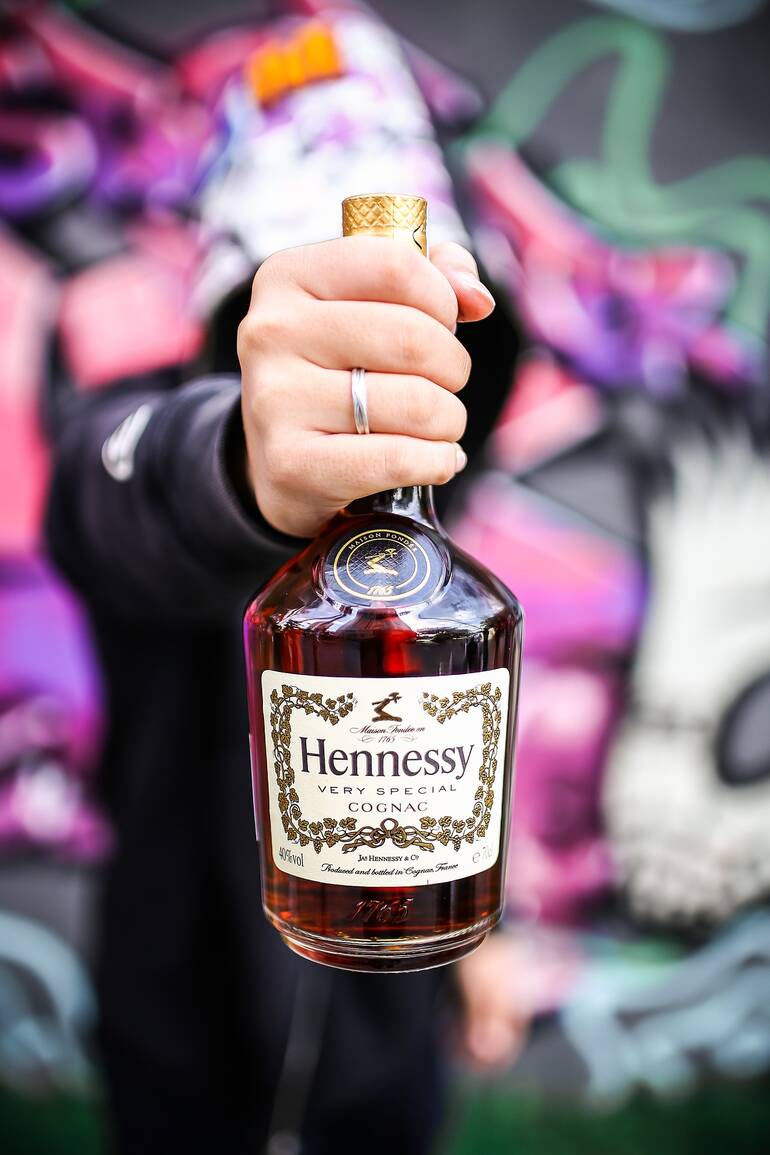Start 14-Day Trial Subscription
*No credit card required

Gen Z & Alcohol: Why They Prefer Quality Over Quantity
Statistics show that alcohol is of less importance to those in Generation Z than it has been to the three previous generations before them. This is evidenced through the decrease in consumption levels by age as compared to each older generation’s divergent drinking patterns.
The new understanding is that Gen Z cares less about the quantity of their beverages and are more intentional about the quality of what they drink when they decide to do so. Many beverage companies—alcohol companies in particular—are faced with the need to adapt their marketing practices and goods production to reach this new generation who finds different appeal in their beverages. Companies can’t operate from the same practices they previously used with the older generations to also reach Gen Z.
To get to the bottom of how alcohol brands can target their younger audience, we spoke with business founders and CEOs to get their take on what exactly Gen Z’s are looking for in their alcohol based on their unique preferences.
It’s a Conscious Movement To Reduce Alcohol Intake
What marketing studies have found is that members of Generation Z see the consumption of alcohol differently than any other generational group. Whereas it has previously been seen as a mark of ‘coolness’ to drink with friends, or as a way to slough off stress, Gen Z’s want an intentional reason to consume anything. And we all know that the mindset around health and wellness has changed, another key factor in the adapting alcohol industry.
“Generation Z isn’t just not drinking as much as the older age groups, but those in this demographic are actively choosing to do so. Surveys reveal that the younger generation is well aware of the poor health choice alcohol falls under, and many of them have decided it’s not for them. Maintaining their health and their weight is first and foremost in their minds, and since alcohol counteracts these goals, it has been something they haven’t struggled to cut out,” says Boye Fajinmi, Co-Founder and President of The Future Party, a community-based media company.
Mental Health Is a Priority
Adding to this general avoidance of anything not health beneficial on their bodies, Gen Z’s are also motivated to help maintain robust mental health levels in any way they can. Instead of turning to alcohol as a form of escapism, the younger population prefers to face their issues in more direct ways, such as through therapy and open communication.
“Whereas all generations have been well aware of the importance of being physically healthy, no generation understands the necessity of having an equally thriving mental health like the youngest one does. A main concern of theirs is that alcohol may be of detriment to their mental health, which is both a convincing and important reason for them to avoid these beverages. Perhaps seeing patterns of others before them turning to alcohol as an avoidance tactic and the damaging effects this can have even years down the line has contributed to the general resolve to take different actions,” says Jason Reposa, Founder and CEO of Good Feels, a sparkling cannabis beverage company.
Health Is Number One
What we do know is that the shift in mindset to prioritize health and wellness has impacted the beverage industry, along with most other markets as well.
“Health is in. It’s more than just a mindset, it’s a lifestyle members of Gen Z follow with their minds, bodies, and souls. We have to remember that the world the younger generation is growing up in is different from what each previous generation has experienced. Every generation has faced their fears, hardships, and uncertainties, but what is really interesting is the way people respond overall to these things. Generation Z primarily faces their struggles by placing emphasis on their health journeys as a way of keeping them grounded. Mindfulness, healthy living, natural products, and environmental consciousness are all trends we see today. Practically every market has had to shift their practices to target the new demographic of shoppers, with the health and wellness fields booming off the charts. These priorities leave space for beverages that fuel and nourish the body, but drinks that are unhealthy and purely consumed for fun or for popularity reasons are not at the top of anybody’s list these days,” says Lauren Kleinman, Co-Founder of The Quality Edit, a brand review platform.
Location Also Plays a Key Role
Another piece of the puzzle that businesses in the alcohol industry need is the knowledge that the art of going out for drinks has been somewhat lost on the younger generation, as their approach to social drinking is more likely to take the route of mixing drinks at home.
“The alcohol industry is facing a new age. The way that Generation Z engages with the market is vastly different from how trends have been in the past. Young people don’t go out and drink socially in bars and restaurants anymore, or at least are far less inclined to than their parents were. This is mainly because of health concerns and the way the pandemic rapidly shifted the way the younger generation has experienced doing life together. During the first wave of the pandemic in 2020, the alcohol e-commerce app Drizly assessed their data to discover that 52% of people drink at home more than they go out for drinks. And it also found that online alcohol shopping is significantly more common than in-person shopping. With location factoring in to the changed horizon, companies have to adapt,” says Nick King, CEO of Vint, a transparent wine investment platform.
The Act of Purchasing and Drinking Alcohol Is an Experience
Since social and personal drinking takes on a different approach for Gen Z, brands tailoring their marketing and products to this understanding can achieve customer loyalty. They need to appeal to Gen Z’s core desires and their attitude towards drinking.
“With quality playing a much more important aspect to Gen Zers than quantity when it comes to their alcohol (since they generally prefer to drink less overall), companies offering high quality flavor profiles and presenting their values alongside every bottle are a better fit for this audience. You don’t want to just sell alcohol to attract customers. It’s about selling an experience. Most people from this younger generation aren’t going to be heading into the liquor store to buy a six pack of cheap beer. Their approach is entirely different; they’ll select something innovative and tasteful that tells a story, and they probably won’t find it in the store at all but online. Packaging factors into their selections as well, as far as how sustainable it is and if the branding draws the buyer in,” says Brad Neathery, CMO of Oak & Eden, a finished whiskey manufacturer.
Branding Is Key
Understanding Gen Z’s as a brand themselves will help those in the alcohol industry to reach this audience. Companies must appeal to the generation’s mindset on alcohol, how it factors into health and wellness, and what they desire to see from the businesses they support.
“It is integral for marketers to switch their product mindset from substitute to upgrade. A couple of years ago, when people chose a low- or no-alcohol drink, others would see it as a substitute for the ‘real deal,’ but perceptions have changed. Today the message behind alcohol-free is about making a conscious and positive choice, without having to compromise on taste and quality. Happily skipping the hangover, millenials don’t see boozing as ‘cool’ anymore; instead they know the side effects and are consuming more consciously. If they fancy a refreshing tipple, they’re more likely to opt for an alcohol-free G&T option to avoid feeling groggy and wasting their weekend.
“Brands should have a consistent and identifiable voice across their various social channels – one that reflects the brand’s personality and works to serve its community, while also revealing what the brand stands for. The right tone of voice can build trust with audiences, which in time will work to increase a company’s revenue. Alcohol brands offering low- and no-alcohol options should question whether to lead their branding with the alcohol percentage, the logo itself, or even an element that matches the lifestyle of its target audience. But a strong tone of voice won’t be enough to convince a growing group of non-drinking gen Z consumers to invest in your brand; clear messaging and a standout visual identity are as necessary as an appealing product. Gen Z may be changing the low- and no-alcohol space by rebelling against traditional drinks products, but the same rules apply with regard to capturing their attention,” says Amber van de Sande, Creative Account Manager of Paradise, a creative agency.
Sustainable Brands Will Succeed More
With the importance of branding for Gen Z’s specifically (but still following commonsense marketing practices, as van de Saande points out) comes the necessity of following sustainable practices and building these into the brand.
“To appeal to Generation Zers you need to appeal to their passions and values. No generation has been more concerned about global sustainability and more committed to doing their part to influence a change. More than living in the present moment and wanting to kick back with an alcoholic drink, Gen Z’s want to know they will have a future on this planet, and one that looks the way they dream it can. That’s not to say that the younger generation never sits back and relaxes, but the state of the environment is a conscious movement collectively on their minds. Companies can meet Gen Z’s where they are by showing they, too, care about the environment and have built sustainable practices into their business model,” says Anish Patel, Founder of Tinto Amorio, a natural wine and spritzes brand.
It’s About More Than Alcohol Content
Clearly the way Gen Z approaches drinking in general is about far more than alcohol content. Many factors play a role. For alcohol brands to keep up with the younger generation’s demands, they need to become aware of what consumers are looking for.
“It’s about Gen Z being able to live life their ‘right’ way, and there’s a place for both alcohol and zero-alcohol in this. Booze brands need to think differently and embed their learnings into their marketing and brand strategies. A hangover and a sloppy social media presence is considered a competitive disadvantage by many Gen Z consumers. All these trends are influencing purchasing decisions and creating challenges that will feel familiar to many other FMCG categories dealing with unprecedented disruption. Gen Z is demanding that brands play a bigger role in supporting (or even fulfilling) their conscious-driven lifestyle choices and individuality. Therefore, this isn’t just about furnishing consumers with tasty zero-percent booze, far from it; instead it’s a drive to furnish them with the tools to better their lifestyles beyond the liquid,” says Vicky Bullen, CEO of Coley Porter Bell, a global branding agency.
Takeaway
Sales of non-alcoholic ‘alcoholic’ beverages rose 44 percent in 2020 from the year prior, with non-alcoholic beer expected to continue to rise in popularity even more in the coming years. But a lot more than just alcoholic versus alcohol-free factors into Gen Z’s decision to indulge with this or that company’s products. Brands need to be aware of the overarching lifestyle values the generation is committed to and meet them there. One thing is for sure—Gen Z consumers have changed the alcohol industry through their diverging mindset around drinking.



